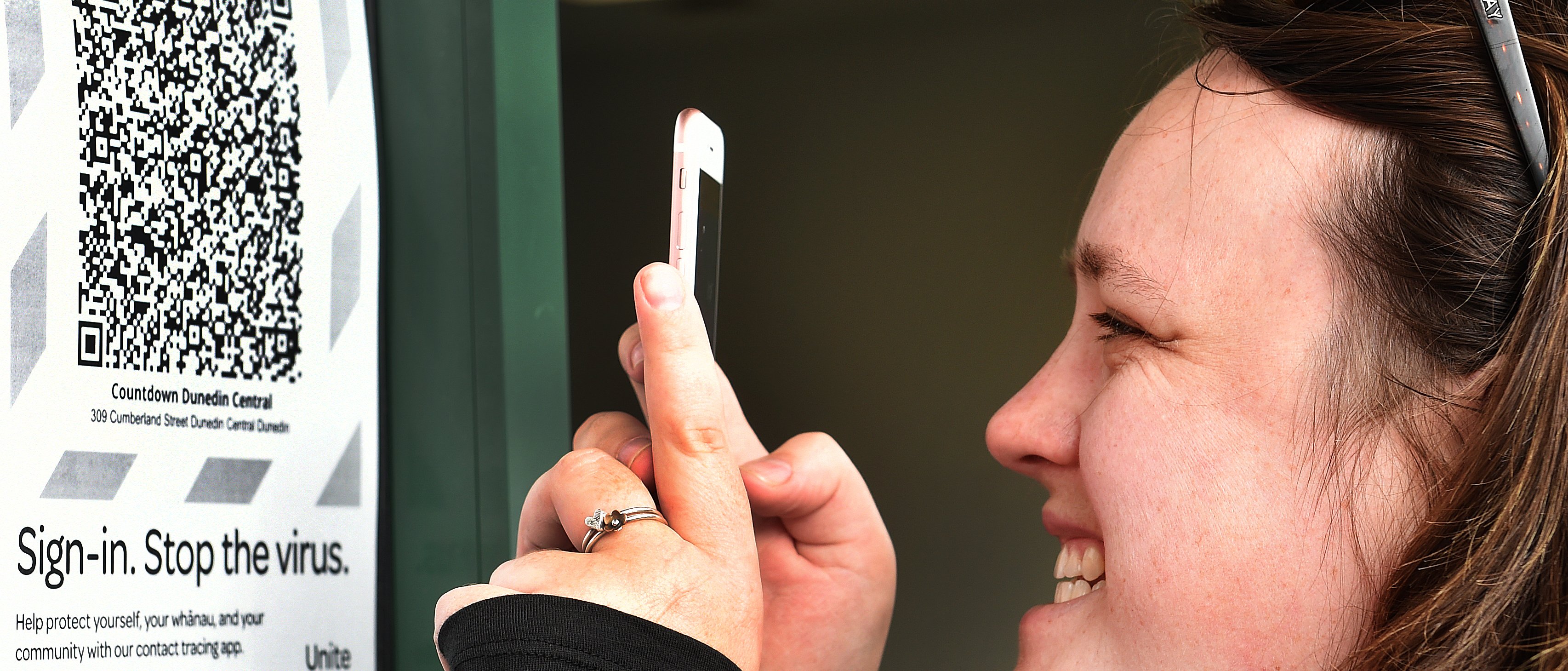
Health officials have long been concerned by falling rates of QR code scanning, as information gathered from recording visits is a vital tool in contact tracing Covid-19 cases.
University of Otago research published in the New Zealand Medical Journal today shows just how slack Dunedin residents have become at scanning.
The median rate of scanning was just 10% and at 12 venues, eight of which were bars, no-one scanned in at all during the survey period.
One cafe had 44 patrons, only one of whom scanned in.
At 10 bars, from a total of 184 customers, just four scanned in.
Supermarket customers were slightly better, recording scanning rates between 11% and 30%.
At one church service a quarter of attendees scanned in, but at another none of 57 worshippers present scanned in on arrival.
"Beliefs that Dunedin is somehow safe from Covid-19 are worrying as they ignore the mobile nature of the population in New Zealand," Associate Prof Lianne Parkin said.
"For example, University of Otago students from Auckland were permitted to travel to Dunedin while Auckland was still at Alert Level 3 and thousands of students from all over the country recently arrived in Dunedin in time for the large social events associated with Orientation Week."
Researchers randomly selected 10 cafes, 10 restaurants, 10 bars, five churches and five supermarkets, and observed scanning behaviour over an hour during peak times.
Most venues were surveyed from January 24-27, just after community cases of Covid-19 were detected in Northland and Auckland — a scare which resulted in the total number of scans at a national level increasing markedly.
"It is impossible to know whether the low proportions we observed in Dunedin during the same period were actually an improvement on previous proportions, or conversely whether there was no change in scanning proportions because people perceived that the local risk associated with the North Island cases was very low," Prof Parkin said.
Researchers also looked at whether QR code posters were displayed correctly.
They found that at seven venues the code was not correctly printed on A4 paper or had been cropped, at four the code was not displayed prominently near the main entrance, and at two high glare on the poster meant it could not be properly scanned.
Comments
Remember Dunedin you must be fearful, the health authorities require it.
There is a difference between fearful and cautious. And denial doesn't make the problem go away...
If you say so eh.
Variables: Where were observations taken? Entry only? Most places have multiple QR codes spread inside the premises. How many people did "manual entries" - I do this quite often, because the app has become rather slow to wake up - it needs some more work. Consider also how many people DO NOT own smart phones, or even a mobile phone - smart phone ownership is not 100%. How many people used the manual - pen and paper - option to record their information? These are just a few missing points of data that prevent us from seeing the whole picture.
Oh please, stand outside any supermarket for 10 minutes and you'll see the same results. Wake up Dunedin. Not good enough. You think this is only a problem elsewhere? You really have no idea how lucky we are. Scan! It really isn't that hard.
Have a look on the buses in town. Lots of people, especially school children, don't wear masks even though its a legal requirement. And there's no enforcement by the authorities.
As soon as the Government follows Australia’s lead and ensures data from the COVID tracing app cannot be used for any other purpose I’ll start using it.












